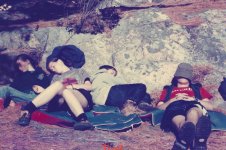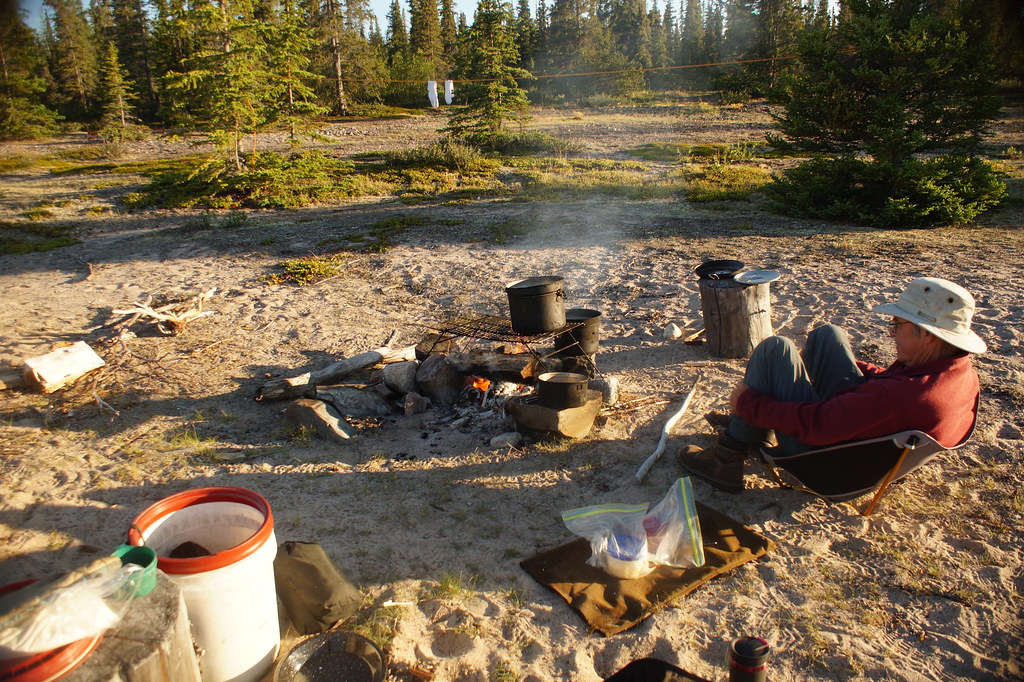OK. I will try adding the captions and images that were truncated previously.
An hour later, paddling conditions seemed slightly better, so we shoved off from the beach. As we neared the point, I angled out from shore to quarter into the rollers. We didn’t want to be too close to the shore, where waves were crashing up onto the point. We also didn’t want to be parallel to the rollers coming at us, as the canoe would wallow, and perhaps overturn in the troughs. This meant that we were actually heading farther out into McLeod Bay. Eventually, though, we cleared the point, and I turned back sharply into the shoal-filled gap between the point and the off-shore rocks. With that strong tail wind, and rollers pushing us from behind, it was just like running a rapid. My mouth dried halfway through.
Moments later we canoed around the point and enjoyed the relative calm of our lee position. We paddled down the small bay and pulled out on a very large, beautiful, open sandy beach. Many people had camped here before. Sawn firewood throughout the site. Geological sample cores. Old bed springs. Wood stoves for wall tents.
We sat down to consider our options. “You know, Kathleen. The next point looks even worse to me. Those breaking waves indicate an extended line of shoals, which would force us even farther out into deeper rollers to get around the point.”
I got up at 6:00 a.m. to catch a fish for breakfast. Didn’t have any strikes after 40 or 50 casts, so gave up. Perhaps I was too impatient after having caught that Lake Trout four days ago on only the third cast.
We very much enjoyed sitting around our large, morning campfire, courtesy of all that sawn firewood left behind for us. We were reluctant to leave. I could have easily been induced to stay for a week. But we had to get to the Mountain River, so we packed up and left at 9:30 a.m.



